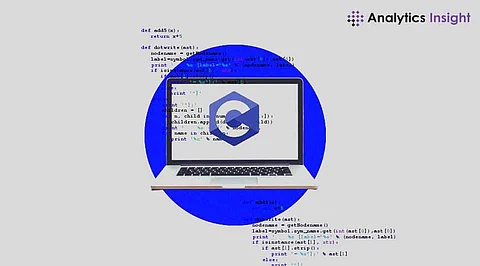

C programming is one of the most powerful, yet long-lasting programming languages in the world of software production. Shining with speed, versatility, and deep grounding in the hardware of the computer, a full mastery of C would provide a solid understanding of low-level and high-level programming.
Here are some compelling reasons why mastery of C programming should benefit developers whether they are amateur or well-seasoned professionals.
Generally purpose language, C is the best to use in various applications. It can be used in developing everything from embedded systems and operating systems to game development, graphic applications, and more. There cannot be a better example of versatility than that of C. Simplicity and direct access to memory make C the best-suited for high-performance applications and real-time systems.
Its versatility has made it an indispensable part of major fields, including database management, the Oracle database, and systems programming, to ensure that C becomes a fundamental skill for modern developers.
One major feature of C is that it provides portability. Any code written in C can run on a variety of platforms, from Windows to Linux to MacOS to mobile operating systems like iOS and Android. Being cross-platform, C is the perfect choice for developers making software that needs to work on multiple configurations of hardware.
Compiling code on almost any system indicates that developers can reach a wide audience without worrying about compatibility issues. This also reduces development time and costs since the same code can be reused on other platforms.
This knowledge of C brings you to almost all other languages; most modern programming languages like C++, C#, and Java are based on the core of C. When you understand C, you get to know everything that suits your foundation: variables, control structures, and memory management.
This ability makes developers jump from one language to another very easily and understand and solve the most complex challenges in programming.
C allows direct control over the memory, which is a very useful skill in system programming. Pointers and manual memory management enable writers to produce optimized, efficient code. Direct, low-level access to the memory helps programmers understand how computers actually store and retrieve data.
Learning good memory management in C can avoid two common pitfalls: memory leaks and memory fragmentation, which are typical problems that degrade the performance and reliability of software. Mastering C also provides insight into computer system architecture: how operating systems manage processes and resource allocation.
C is fast. Programs written in C are compiled directly into machine code and thus run fast. This makes C the best choice for performance-critical applications, such as video games, real-time systems, and embedded devices.
The efficiency of the language is not limited to just execution speed; developers can also optimize their code to be executed in the most efficient way possible. The developers can manually control the memory and use low-level system features to achieve optimization levels that are impossible with high-level languages.
In addition to being an extremely powerful language, C is also an ideal medium through which one can learn all fundamental concepts of programming. Core elements of C programming include data types, variables, loops, functions, and arrays.
It also sharpens the art of problem-solving since it forces developers to manage their resources, debug errors, and optimize code manually. The C structure encourages logical thinking, which is critical in effective software development. C, being a procedural language, teaches the developers to break down complex problems into parts and to solve each one progressively.
C is a low-level language and, as such, is always preferred for system-level programming. Its applications include operating systems, device drivers, and embedded systems that usually interface directly with hardware.
The need to access hardware resources and manipulate memory makes C an ideal choice for the writing of microcontrollers and embedded system software that is efficient. Everyone interested in developing software for devices such as smartphones, household appliances, and industrial machinery should learn C.
Notwithstanding the growing use of high-level programming languages, C is not obsolete today. In fact, a good developer in C is the most sought-after in more areas that include embedded systems, networking, and high-performance computing.
Careers in operating system development, network security, game development, and many more require knowledge of C. With a high usage in academia, C can be an excellent stepping stone for high-paying job opportunities and career development among researchers and developers for complex systems.
Learning C also benefits from having a great community and a wealth of resources available. With decades of usage in the development of software, C boasts an enormous library of documentation, tutorials, and open-source projects.
This means that developers can easily find the answers to nearly any question or problem they may come across while learning or working with C. The C programming community is active and engaged, offering a wealth of knowledge and support for novice and expert programmers alike.
Learning C programming offers a wide range of skills highly valued within the software development industry. It provides a solid understanding of how computers work in hardware and teaches the necessary programming concepts, as well as provides tools for writing efficient, high-performance software.
Whether building operating systems or developing embedded systems or just applications where you need fine-grained control over resources, C remains an essential language to be learned in building solid programming foundations. For developers to be successful in the increasingly changing tech world, they master C.
